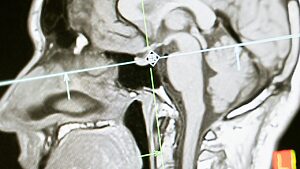Demerol, the brand name for meperidine, is a synthetic opioid pain medication that has played a significant role in pain management for decades. First synthesized in 1939 by German chemist Otto Eisleb, Demerol was initially hailed as a potential substitute for morphine. The U.S. Food and Drug Administration approved it for medical use in 1942, marking the beginning of its widespread use in healthcare settings.
Medical Uses
Demerol is primarily prescribed for the treatment of moderate to severe pain. Its rapid onset of action makes it particularly useful in hospital settings for managing acute pain, such as:
- Post-surgical pain
- Obstetric pain during labor and delivery
- Severe injuries
The drug is also sometimes used as a pre-operative medication to help sedate patients before surgery.
How Demerol Works
Like other opioids, Demerol works by binding to specific opioid receptors in the brain, spinal cord, and other areas of the body. This interaction alters the perception of pain and produces a sense of euphoria. Specifically, Demerol is a mu-opioid receptor agonist, meaning it activates these receptors to produce its pain-relieving and euphoric effects.
Side Effects
Demerol use can lead to various side effects, ranging from mild to severe:
Short-term side effects:
- Nausea and vomiting
- Dizziness
- Drowsiness
- Constipation
- Sweating
- Itching
Long-term side effects:
- Increased pain sensitivity
- Hormonal imbalances
- Weakened immune system
- Cognitive impairment
- Increased risk of falls and fractures in older adults
In rare cases, Demerol can cause a serious condition called serotonin syndrome, especially when combined with certain other medications.

Addiction Risk and Classification
Demerol carries a high risk of addiction, even when used as prescribed. Its ability to produce intense euphoria and its relatively short duration of action contribute to its addictive potential. Due to these factors, Demerol is classified as a Schedule II controlled substance under the Controlled Substances Act, indicating its high potential for abuse and the possibility of severe psychological or physical dependence.
Prevalence of Abuse and Role in the Opioid Crisis
While not as commonly abused as some other opioids like oxycodone or hydrocodone, Demerol has contributed to the broader opioid crisis. Its potency and availability in healthcare settings have made it a target for diversion and misuse. Healthcare professionals, due to their access to the drug, have been identified as a group at particular risk for Demerol abuse.
Withdrawal and Detoxification
Demerol withdrawal can be extremely uncomfortable and potentially dangerous. Symptoms typically begin within 24-48 hours after the last dose and may include:
- Anxiety and agitation
- Muscle aches and pains
- Nausea and vomiting
- Diarrhea
- Insomnia
- Sweating
- Rapid heartbeat
The intensity of these symptoms and the potential for complications make medically supervised detoxification crucial for those attempting to stop Demerol use.
Declining Use in Medical Practice
In recent years, the medical community has moved away from prescribing Demerol due to several factors:
- Safer alternatives: Other opioids and non-opioid pain medications have been found to be equally effective with fewer risks.
- Short duration of action: Demerol’s effects wear off quickly, potentially leading to more frequent dosing and increased risk of addiction.
- Toxic metabolite: Demerol breaks down in the body to normeperidine, a toxic metabolite that can accumulate and cause serious side effects, including seizures.
- High abuse potential: The risk of addiction and diversion has led many healthcare facilities to limit or eliminate its use.
Recognizing Demerol Addiction
Signs of Demerol addiction may include:
- Using the drug in larger amounts or for longer than prescribed
- Unsuccessful attempts to cut down or control use
- Spending significant time obtaining, using, or recovering from the drug
- Experiencing cravings or strong urges to use Demerol
- Neglecting responsibilities at work, school, or home due to drug use
- Continuing use despite it causing or worsening physical or psychological problems
If you or someone you know is exhibiting these signs, it’s crucial to seek professional help immediately.
Treatment for Demerol Addiction
Overcoming Demerol addiction often requires comprehensive, professional treatment. This typically involves:
- Medically supervised detoxification
- Behavioral therapy (e.g., cognitive-behavioral therapy, contingency management)
- Medication-assisted treatment (MAT)
- Support groups and peer support programs
- Aftercare and relapse prevention planning
At Texas Recovery Centers, we offer specialized treatment programs designed to address the unique challenges of opioid addiction, including Demerol dependence. Our comprehensive approach combines evidence-based therapies, medical supervision, and personalized care to support lasting recovery.
Don’t let Demerol addiction control your life. If you or a loved one is struggling with Demerol use, call Texas Recovery Centers today at 888-354-2194. Our compassionate team is ready to help you start your journey to recovery.













